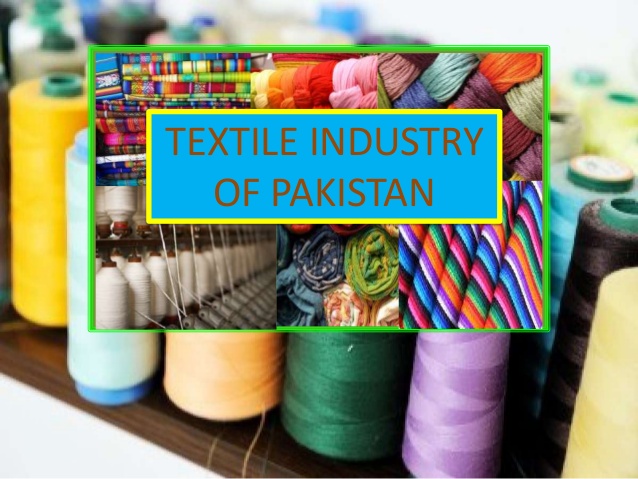The Pakistan textile industry is the biggest manufacturing industry in Pakistan. The textile and clothing industry in Pakistan is of great importance to the country’s economy. Textiles and apparel account for more than 61 percent of Pakistan’s total exports, and the sector directly employs about 40 percent of the country’s industrial labor force. The industry also employs more than 10 million farming families, reflecting Pakistan’s status as a major producer of raw cotton. Pakistan is the eighth largest exporter of textile goods in Asia and it contributes 8.5% to the GDP of Pakistan. Pakistan is Asia’s third-largest cotton producer by spinning capacity, behind China and India, and it provides 5% of the world’s total spinning capacity.
On the negative side, the business has had to deal with ongoing power outages, chaos brought on by tumultuous political situations, and a decline in the quality of Pakistani cotton its primary raw material due to unethical practices. Moreover, industrial investment has decreased. On the plus side, the nation has a plentiful supply of inexpensive labor, and the textile and apparel industries profit from duty-free access to the EU import market thanks to the Generalized Scheme of Preferences (GSP) GSP+ arrangement.
Competitive Advantage in the Global Market:
Table of Contents
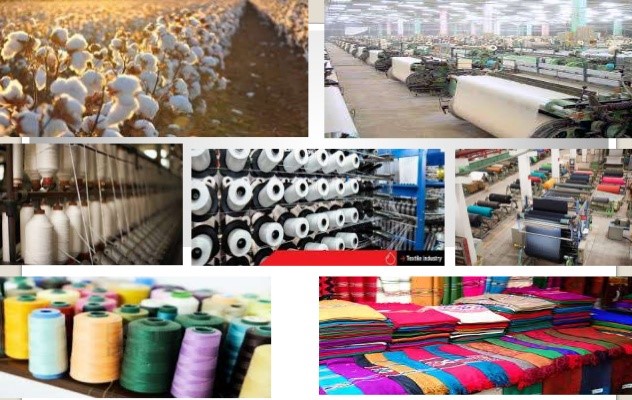
The following are the competitive benefits of the Pakistan Textile Industry in the Global market.
Significant Role in the country’s economy:
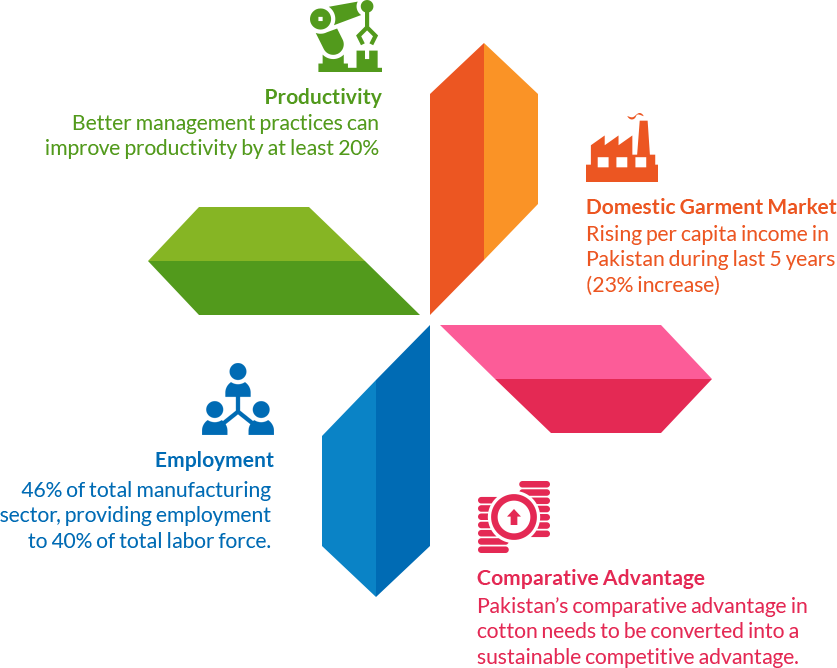
Pakistan is one of the few countries around the globe with the ability to produce textiles along the entire industrial chain. There are 442 spinning mills, 124 large-scale textile and apparel factories, 1,221 cotton ginning mills, and 425 small-scale textile and apparel factories in Pakistan. The capacity to produce cotton yarn annually is roughly 11.3 million spindles, with 300,000 textile machines, 350,000 power looms, and 18,000 knitting machines. The annual production of cotton fabric capacity is 5.2 billion square meters, with 700,000 industrial sewing machines. The annual production of man-made fiber is about 600,000 tons, and the annual production of terephthalic acid is 500,000 tons. All of these provide a strong foundation for the growth of the textile industry.
Production of Textile Enterprise Group:
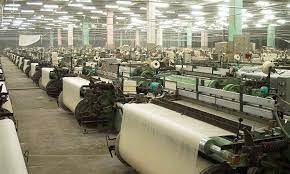
Distribution of production and research is relatively concentrated. Over 60% of Pakistan’s textile industries are concentrated in Punjab and 30% in Sindh. The city of Punjab province, Faisalabad is a famous textile industrial city. It has a group of textile businesses made up of big, medium, and little textile factories and workshops. The textile industry of Pakistan exports accounts for 58 percent of the country’s total textile exports. Pakistan’s largest textile technology institutes and facilities are also concentrated in the city, including the University of Agriculture Faisalabad (UAF), the National Textile University (NTU), and the Cotton and Agricultural Research Institute.
Pakistan textile industry has a significant impact:
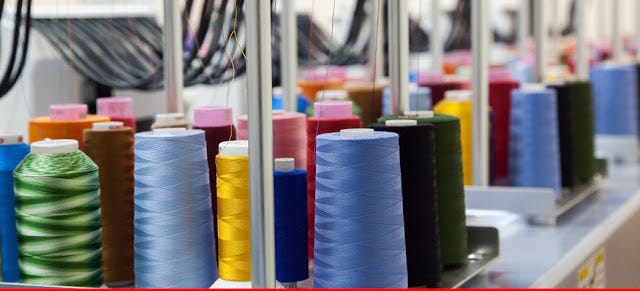
Pakistan Textile Industry organizations have significant influence. Prominent trade organizations of the Pakistan textile industry include the All Pakistan Textile Mills Association, the All Pakistan Textile Processing Mills Association, and the Pakistan Knitwear Manufacturers Association. The All-Pakistan Textile Mills Association and its local affiliates are crucial to the development of Pakistan’s textile industry because it is one of the main sectors of the country’s economy.
Pakistan textile industry Provides Employment Industrial Workforce:
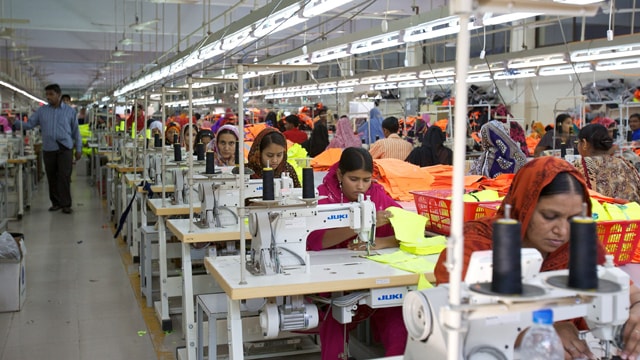
The Pakistani textile and apparel sector is crucial to the economy of the country. More than 61% of Pakistan’s total exports are textile and apparel, and the sector directly employs about 40% of the nation’s industrial labor force. The industry also supports more than 10 million farming families, reflecting Pakistan’s status as a major producer of raw cotton. The country has an abundant supply of low-cost labor, and the textile and clothing industry benefits from duty-free access to EU import markets under the Generalized Scheme of Preferences (GSP) GSP+ arrangement.
Read more about Summer Collection For Women

